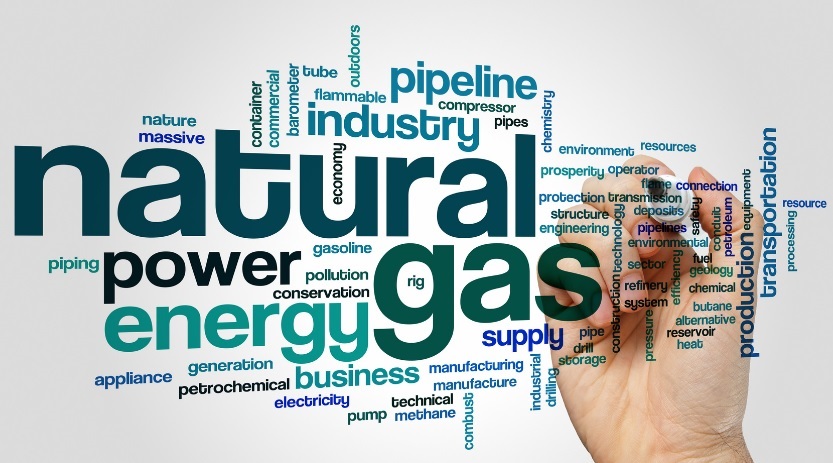
I live in an old house. My apartment is in a subdivided house that was built in 1902, and I love it. I love the tall ceilings, the absurd amount of windows, and the million tiny odd changes made by tenants and owners for the past 100-plus years.
My love affair with my apartment came to an abrupt end about the middle of November when the temperature dropped. I was suddenly aware of how many cracks a house collects in a century-long existence. My old house uses natural gas for heating, and I was initially nervous about using it. So I asked my property manager about how to use natural gas safely, and they gave me some great advice that kept me from shivering during the cold winter months.

Natural Gas in Residential Properties
Natural gas is commonly used in residential properties for various purposes due to its efficiency, affordability, and availability. The type of natural gas used in homes is primarily methane (CH4). Methane is the main component of natural gas, typically accounting for around 70-90% of its composition. Besides methane, natural gas can also contain small amounts of other hydrocarbons, such as ethane (C2H6), propane (C3H8), butane (C4H10), and pentane (C5H12), as well as impurities like nitrogen, carbon dioxide, and water vapor.
When natural gas is extracted from underground reservoirs, it is processed to remove impurities and separate different components, leaving a predominantly methane-rich gas mixture suitable for residential and commercial use. The methane content in natural gas makes it an efficient and clean-burning fuel, which is why it is widely used for heating, cooking, and various household applications.
Here are some common uses of natural gas in residential settings:
- Heating: Natural gas is commonly used as a fuel for central heating systems and space heaters. It can provide warmth to entire homes or specific areas, making it a popular choice for cold climates.
- Cooking: Many households use natural gas for cooking purposes. Gas stoves and ovens are preferred by many chefs and home cooks for their precise temperature control and quick response times.
- Water Heating: Natural gas water heaters are widely used in homes to provide a constant supply of hot water for bathing, washing dishes, and other household tasks.
- Clothes Drying: Some homes use natural gas dryers, which can be more energy-efficient and faster than electric dryers.
- Fireplaces: Natural gas can be used as a clean and convenient fuel source for gas fireplaces, offering the warmth and ambiance of a traditional fireplace without the need for wood.
- Backup Generators: In areas prone to power outages, some homeowners install natural gas-powered backup generators to ensure essential appliances and systems can continue functioning during emergencies.
- Outdoor Use: In some cases, natural gas is used for outdoor amenities like grills, patio heaters, or outdoor fire pits.
- Pool and Spa Heaters: Natural gas heaters are commonly used to heat swimming pools and spas.
- Lawn Equipment: Some homeowners use natural gas-powered lawnmowers and other outdoor equipment.

Natural Gas Safety Tips
- Schedule regular inspections of your natural gas appliances, heating systems, and gas lines by a qualified professional. This helps identify and address any potential issues before they become major problems.
- If you have gas appliances or fireplaces with pilot lights that you don’t frequently use, consider turning them off to save energy. The pilot light should always burn blue when in use. If a yellow or orange flame is present, immediately alert your landlord and the natural gas company. This may be a sign of needed maintenance or other problems with the unit.
- Ask your technician to check the temperature of the water heater. Natural gas-powered water heaters should be kept at a comfortable 120 degrees Fahrenheit. Any higher and you risk burns, particularly for children and the elderly.
- Keep the area around any natural gas units clear of furniture, debris, and flammable material. Regularly clean the lint trap in your dryer. Also make sure all gas appliances are correctly vented to the outside. This prevents the accumulation of harmful gases inside your home and ensures the appliances operate efficiently.
- Never use a non-heating device (like a stove) to heat your home. Also make sure to check that fire extinguishers supplied by the landlord are functional and up-to-date.
- Natural gas appliances can produce carbon monoxide (CO) if they malfunction or are not properly vented. Install carbon monoxide detectors on every level of your home, especially near bedrooms, to provide early warning in case of a CO leak.
- Familiarize yourself with the smell of natural gas (it has a distinct odor like rotten eggs). If you suspect a gas leak, leave the area immediately, don’t operate any electrical switches or devices, and contact your gas provider or emergency services from a safe location.
- Don’t hesitate to alert your landlord if anything about your natural gas service seems off.

What if I smell natural gas?
When I was a kid, I knew two things about natural gas. First, it can kill you fast because it’s odorless. Second, natural gas can also smell like rotten eggs. I was understandably confused and hyper-vigilant about any scent in our house that could possibly resemble an egg.
The reason for these contradictory statements is that they’re both true, sort of. While the gas itself is odorless, natural gas companies add a chemical called mercaptan that gives the gas a rotten egg smell. If you notice a rotten egg smell in a home that uses natural gas, adhere to the prescribed rules for dealing with gas leaks.
Natural Gas Leak Safety
- Leave the building immediately. Evacuate your family members and any pets.
- When you get to a safe place, call your natural gas company first and then contact your landlord.
- Do not start a vehicle if it is in an attached garage. Don’t use an automatic garage opener.
- Don’t use matches, open flames, cigarettes, or an open flame inside a house with a suspected leak.
- Don’t use an electrical switch in the home.
- Don’t use your cellphone or a landline.
- Stay out of your house or apartment until a natural gas company representative arrives and you get the clearance to reenter your house.
Rest Easy
Natural gas is safe, despite the generalized anxiety some people have around an open flame. Talk to your landlord about safety tips and precautions that are specific to your unit to ease your mind about using natural gas. Rest easy, and stay warm.


 Log in
Log in Free Trial
Free Trial





